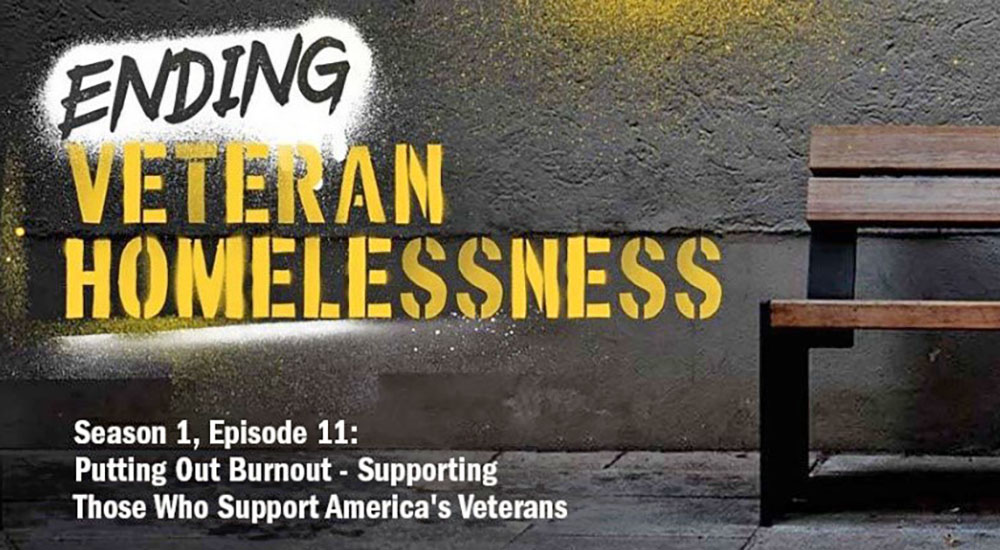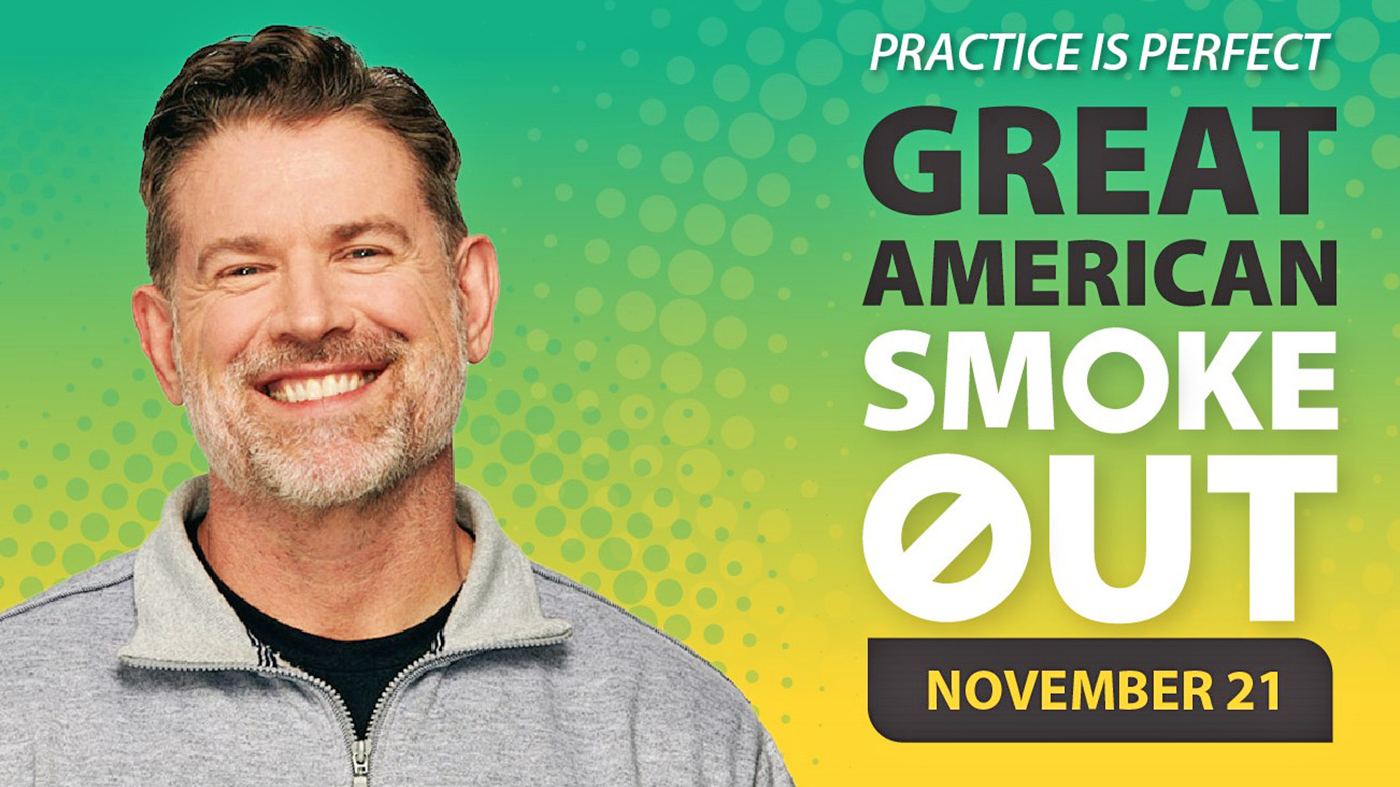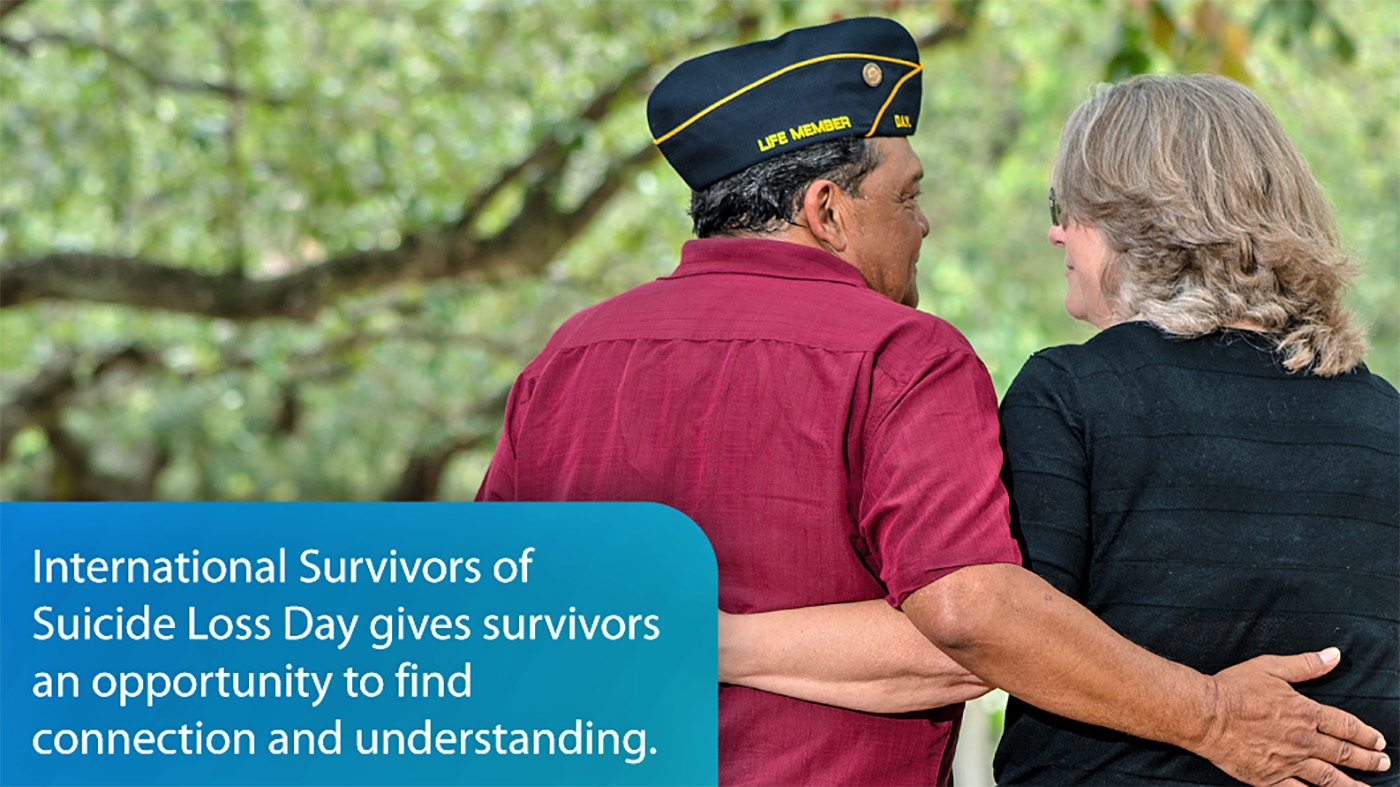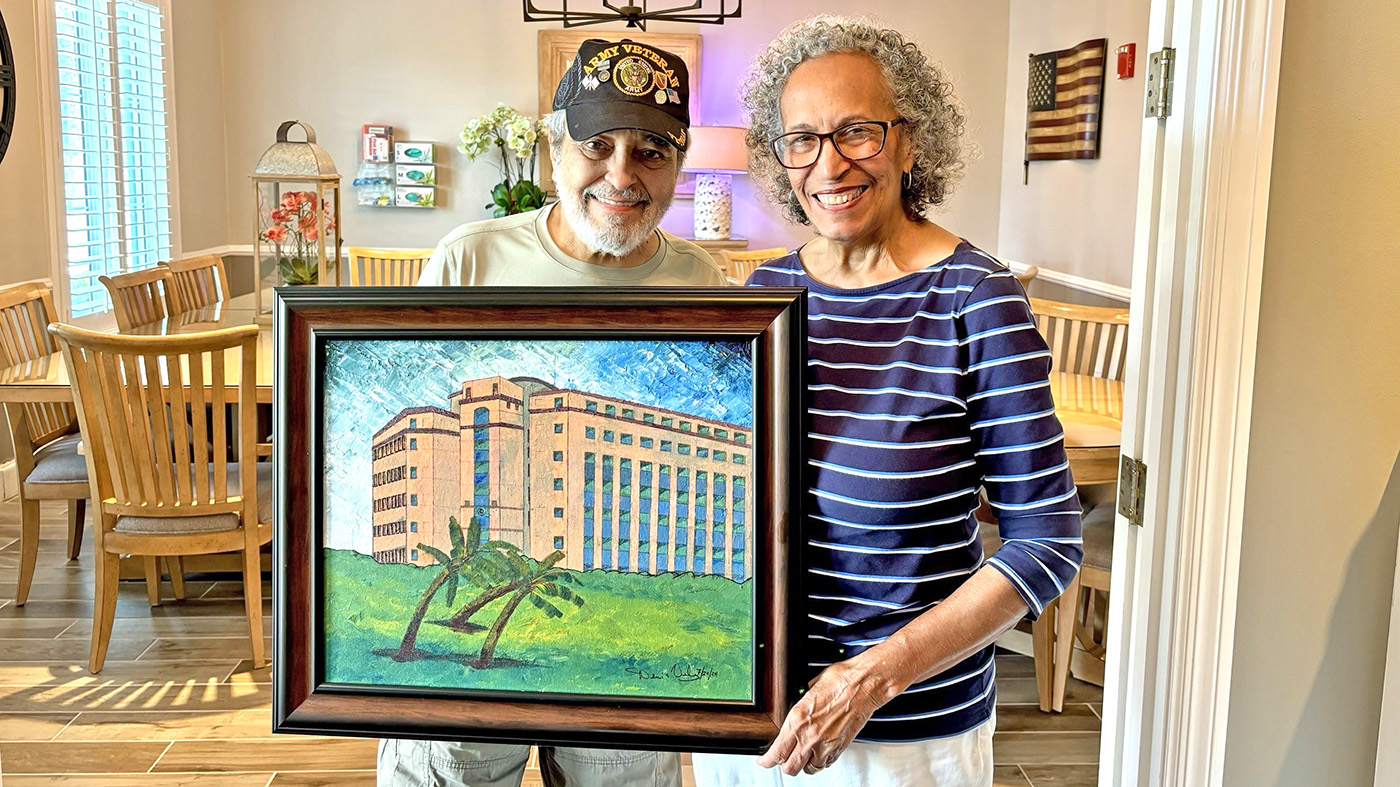Since 2010, we’ve seen a more than 55% reduction in Veteran homelessness. It can be easy to look at that number and not be aware of the immense effort from VA’s social workers who helped get us there and the burnout toll such work can take on the individuals getting the job done.
On this month’s Ending Veteran Homelessness podcast, Dr. Roger Casey, director for Education and Dissemination at the National Center on Homelessness among Veterans, discusses burnout among VA homeless program social workers and what is being done about it.
He is joined by Dr. Nikola Alenkin, supervisory social worker with the Greater Los Angeles VA.
Helping Veterans overcome complex situations
VA social workers make a difference in the lives of Veterans every day but the work is not without its challenges. VA staff members are tasked with helping Veterans overcome complex situations and often have limited resources to do so.
In addition to staff members’ motivation to serve Veterans, they may also feel external pressures to meet deadlines and targets. The societal systems and institutional barriers that cause too many Veterans to experience homelessness in the country they served can be overwhelming to see and address.
It can be easy for social workers to feel frustration, hopelessness and even anger, feelings we label as “burnout.” “The best way to describe it is folks not feeling as though they’re making a difference,” said Casey.
REBOOT program examines issues of burnout
Through staff interviews, VA’s National Center on Homelessness among Veterans reports that about 50% of all staff in VA homeless and justice programs report symptoms of burnout.
Knowing that burnout is a prevalent issue that requires systemic change to improve, VA has created a national program, REBOOT (Reduce Employee Burnout and Optimize Organizational Thriving) Task Force, to examine the issues of burnout and resiliency among all VHA staff.
At the local level, Alenkin took matters into his own hands by leading a 12-week class on self-care techniques for staff.
“It was a very simple idea that was populated by not much effort on our behalf other than committing to being together at a certain time and a certain place,” said Alenkin. “What developed was this peer support and kinship to feed into the sense of self, the sense of professional self and the sense of personal self.”
“When we take care of our team, we take care of our Veterans.”
VA is in the early phases of having organizations integrate a holistic approach for workers. The Center is continuing its national review, gathering homeless program national managers together to find solutions while keeping its ear to the ground to get continuous feedback from the field.
“When we take care of our team, we take care of our Veterans,” said Monica Diaz, executive director of VA Homeless Programs.
Learn about VA programs
If you are a Veteran who is homeless or at risk for homelessness, call the National Call Center for Homeless Veterans at 877-4AID-VET (877-424-3838).
Visit the VA Homeless Programs website to learn about housing initiatives and other programs for Veterans exiting homelessness.
Check out the Ending Veteran Homelessness podcast to learn more about what VA is doing about Veteran homelessness.
Learn about how to get involved with housing homeless Veterans.
Read the REBOOT Task Force fact sheet.
For more stories like these, subscribe to the Homeless Programs Office newsletter to receive monthly updates about programs and supportive services for Veterans experiencing or at risk of homelessness.
To read more stories on Veteran homelessness, visit VA News and Information.
Topics in this story
Link Disclaimer
This page includes links to other websites outside our control and jurisdiction. VA is not responsible for the privacy practices or the content of non-VA Web sites. We encourage you to review the privacy policy or terms and conditions of those sites to fully understand what information is collected and how it is used.
More Stories
For the Great American Smokeout, explore VA resources and learn why every attempt to stop smoking is a step toward success.
If you’ve lost a loved one to suicide, resources and support are available to help you cope during your grieving and healing.
Army Veteran Denis Velez donated a painting of his VA hospital as a way of giving back for his treatment there.







Instead of Congress, VSO’s and VA leadership passing laws maybe it would be best to start listening to what the VA Social Workers and Medical staff have to say about what’s best for the Veterans.
The VA would avoid many mistakes if they listened to those on the front lines